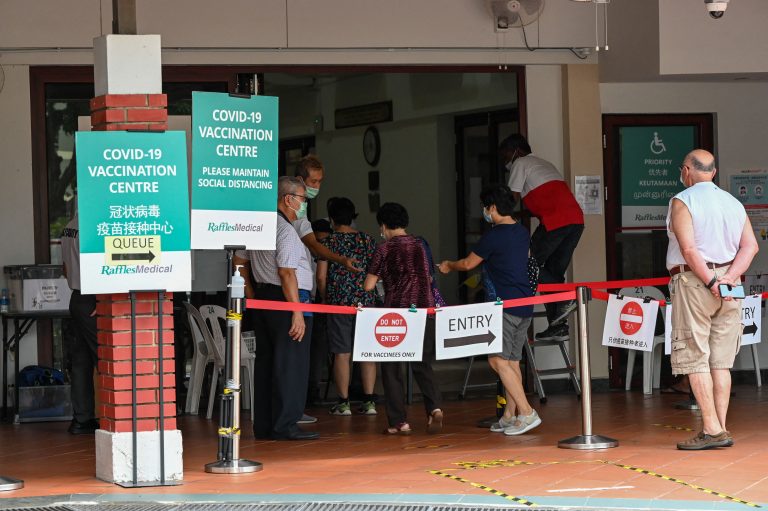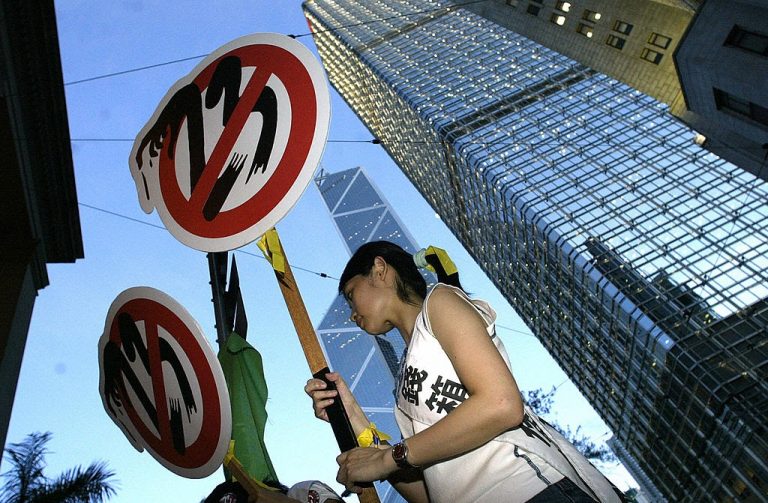Singapore is currently pushing for a vaccination mandate on all workers by Jan. 1, amidst infection numbers going through the roof while 96 percent of its workforce is fully vaccinated.
The mandate is yet another step the city-state has taken to ramp up its coronavirus measures, tightening its grip on the populace while losing control over the COVID situation with daily infection numbers soaring.
At a press conference on Saturday Oct. 23, Trade and Industry Minister Gan Kim Yong, one of the three co-chairs of the government’s coronavirus task force, reiterated, “We would like to seek the assistance of employers in encouraging their unvaccinated employees to get vaccinated as soon as possible,” Free Malaysia Today reported.
But success is far from assured, with the number of daily infections hovering steadily above 3000 after peaking on Oct. 19 with 3,994 new infections.
The number of seriously ill patients has also sky-rocketed, with 27 patients allowed at intensive care units (ICUs) on Sept. 27 and 67 on Oct. 18.
Success
You are now signed up for our newsletter
Success
Check your email to complete sign up
Meanwhile, in total, more than 161 COVID-19 attributed deaths have been reported in the three weeks prior to Oct. 19, and the daily body count is also steadily increasing.
Caveats
Non-vaccinated workers may also prove having recovered from COVID-19 within the past 270 days or hand in an antigen rapid test certificate issued by an approved registered provider.
They need to do so every single day they need to enter the workplace for the test is valid for only 24 hours—and comes at the worker’s own expense.
This most recent push for vaccination is remarkable in itself, given that 96 percent of its workforce and 84 percent of its population are already fully vaccinated.
However, like task force co-chair Ong Ye Kung said that out of the 75.000 new infections in the past month, 98 percent were mild or asymptomatic cases, practically admitting the high infection rate was caused by the high vaccination rate attained in the metropole.
Earlier, in late September, officials already implemented stricter regulations for what they dubbed the Stabilization Phase. These directives included a limitation on outdoor sports, social gatherings, and in-person dining to a maximum of two people. Even more than two people of the same household are not allowed to dine out together.
The measures were intended to last till Oct. 24 but have been extended to Nov. 21. But Lawrence Wong, another co-chair of the task force, said the extension was necessary or Singapore would “face considerable risk of the health-care system being overwhelmed.”
The task force also came with some allowances. Those who have a medical exemption for taking a vaccine based on mRNA technology, like Pfizer of Moderna, may also turn to the Sinovac vaccine.
CoronaVac was developed by Sinovac in China which is based on inactivated virus technology. Taking two Sinovac jabs is also considered fully vaccinated, albeit a third dose should be taken 90 days after the second.
Meanwhile, the government hopes for the infection rates and hospitalizations to fall when more people get their booster shots. When that happens, Singapore can “open up social and economic activities. And then, we would have achieved a new equilibrium with the virus, and that is what we are working towards,” co-chair Ong Ye Kung said, according to SCMP.















